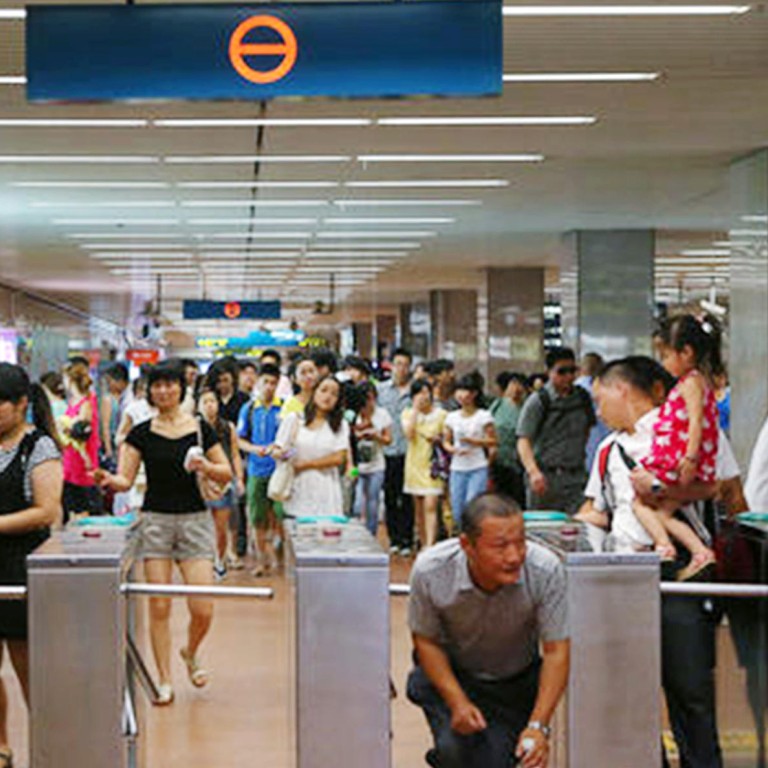
Shanghai includes fare dodgers on credit blacklists
Those who try to ride Metro for free risk being denied loans and jobs, but some say campaign doomed to fail because tickets are too expensive
Anyone who has taken the subway in Shanghai recently would have noticed posters. Adorned with cartoon characters, the notices warn Shanghai Metro patrons against riding the trains without paying for a ticket: "Ride free one time, feel shameful and regret it for your whole life".
Passengers found to have boarded a train without a ticket - or using a fake concession card - will have their personal details included in the city's credit blacklist. Concession cards are given to the elderly or disabled, so they can ride for free.
Shanghai's subway system is among the world's longest, at more than 420 kilometres, and perhaps one of the busiest, used by seven million passengers each day. It is also well known for the number of people who avoid paying, employing a variety of tactics.
Some vault the toll gates, others worm their way through the three rotating bars, while others - usually young couples - do the two-for-one trick, clasping each other tightly and passing through with just one ticket.
But the real number of fare dodgers is certainly far higher.
Local opinion about the free-riders is split. Some regard them as a blot on the city's proud image. Others are dismissive of any crackdowns, saying it would be unfair to add another burden on Shanghainese who already pay more for subway fares than people in other mainland cities.
What a two yuan (HK$2.52) fare gets you in Beijing costs three to seven yuan in Shanghai - a sore subject for the Shanghainese, especially since the pay scales in the cities are about even. Hence those who occasionally sneak a free ride when their prepaid cards are out of cash, or it's too far to go to the service centre to refill them, feel less guilty.
Aiding the rampant ticket cheating is the fact that Shanghai has fewer staff to watch out for shirkers than Beijing. Also, the current fine for fare-dodging under the Shanghai Subway Management Rule is light - five times the ticket price compared to twice that level in many other cities
This month, Shanghai has launched a one-month campaign to try to stamp out ticket cheating by stepping up inspections at subway stations and blacklisting offenders from the city's credit system.
People blacklisted cannot get bank loans, receive aid from civil authorities or seek jobs. But when the campaign is over, will the penalties escalate?
Stiffening penalties for fare-dodging is reminiscent of another high-profile campaign waged in 2006 against another "uncivilised" activity - jaywalking.
How did that get-tough policy work out? Not well. Residents' refusal to wait until the light is red to use the zebra crossings has not improved one bit.

